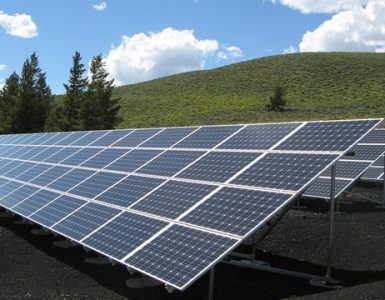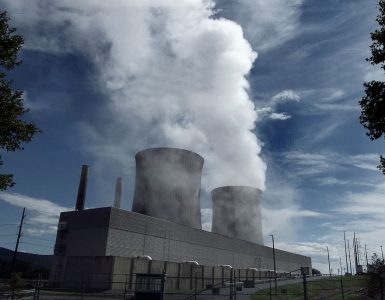As the global economy continues to go through uncertainties caused by wars in Europe and the Middle East, supply chain disruptions, and vagaries of climate change.
As per the World Economic Situation and Prospects report for 2024, there is a deceleration in global GDP growth, from an estimated 2.7% in 2023 to 2.4% in 2024.
The world’s largest economy, the USA is expected to see a drop in GDP growth from 2.5% in 2023 to 1.4% in 2024, while for China, the growth is estimated at 4.7% in 2024, down from 5.3% in 2023. European countries, Japan, and other emerging economies also don’t see any great growth prospects.
The growing impact of Climate Change
The global uncertainties are only exacerbated by the impact of climate change. The spate of climatic events like heatwaves, wildfires, floods, and droughts has exponentially increased in the last few years. These events have direct economic consequences, such as damage to infrastructure, agriculture, and livelihoods.
In this context is not easy to be a finance minister of any economy.
Indian Budget 2024
Amidst this gloom, India remains the fastest-growing large economy in the world.
Given the range of global and external challenges, the Indian economy has shown resilience. India’s real GDP grew by 8.2 percent in FY24, driven by stable consumption demand and steadily improving investment demand. The inflation also continues to be stable, hovering between 4 to 5 percent.
India’s Finance Minister Nirmala Sitharaman presented her seventh Budget and first Budget for the new government which was formed last month.
In the 83-minute budget speech, the finance minister emphasized nine developmental priorities for the country –
- Productivity and Resilience in Agriculture
- Employment & Skilling
- Inclusive Human Resource Development and Social Justice
- Manufacturing & Services
- Urban Development
- Energy Security
- Infrastructure
- Innovation, Research & Development and
- Next Generation Reforms
Given the government’s commitment to ‘inclusive development’ accompanied by a long-term vision of prosperity and sustainability, all the priorities must consider climate change.
Budget 2024 highlights Environment and Climate Change
Sustainable Agriculture
First up on the list is increasing productivity and resilience in agriculture, a series of steps related to this was announced in the Budget, from increasing the focus on developing climate-resilient varieties of food crops to natural farming.
The government will release 109 high-yielding and climate-resilient varieties of 32 field and horticulture crops for cultivation by farmers. In addition, in the next two years, one crore farmers will be initiated into natural farming supported by branding and certification.
This move towards natural farming promotes sustainable agricultural practices and reduces dependency on chemical fertilizers and pesticides. Natural farming not only enhances soil health and biodiversity but also reduces the cost of cultivation for farmers, thus increasing their profitability.
Renewables
The next area where steps were announced in the budget was energy security.
In the interim budget presented in February 2024, PM Surya Ghar Muft Bijli’s scheme was announced for installing rooftop solar panels in 10 million households. The Finance minister mentioned that the scheme has received 12.8 million registrations and 1.4 million applications, marking a significant step in India’s renewable energy journey.
The scheme is designed to provide substantial financial relief to households by harnessing solar power. The solar panels installed on rooftops will reduce reliance on grid electricity and enable households to generate and sell surplus energy, leading to annual savings of Rs 15,000 to Rs 18,000. The implementation of Net Metering ensures that excess energy fed back into the grid earns users credits, effectively lowering future utility bills.
A policy for promoting pumped storage projects was also laid out for electricity storage and facilitating smooth integration of the growing share of renewable energy with its variable & intermittent nature in the overall energy mix.
The finance minister emphasized that nuclear energy is expected to form a significant part of the energy mix. Towards that pursuit, the government will partner with the private sector to set up small reactors and focus on research & development of newer technologies for nuclear energy. The R&D funding announced in the interim budget will be made available for this sector.
A roadmap for moving the ‘hard to abate’ industries from ‘energy efficiency’ targets to ‘emission targets’ will be formulated. Appropriate regulations for the transition of these industries from the current ‘Perform, Achieve and Trade’ mode to the ‘Indian Carbon Market’ mode will be put in place.
Further to increase the manufacturing of solar panels, the FM expanded the list of exempted capital goods for use in the manufacture of solar cells and panels in the country.
Taxonomy for Climate Finance
Finally, in the area related to next-generational reforms, the finance minister announced the development of a taxonomy for climate finance to enhance the availability of capital for climate adaptation and mitigation. This will support the achievement of the country’s climate commitments and green transition.
Wrapping Up
As the world’s 5th largest economy, headed to become the 3rd largest by 2030, India’s energy needs are expected to grow rapidly to support its massive population.
While India’s renewable power capacity has increased drastically by over 25 times between 2014 and 2023, there are several risks associated with the large-scale phaseout of fossil fuels, such as intermittency, grid integration, backup power generation, storage, etc.
Therefore the need to manage economic development with meaningful climate action through energy transition is a tough nut to crack for any economy, including India. The Budget that is presented this year lays out the direction in which the country is thinking.
You can read the highlights of the Indian Budget 2023 from a Climate Change and Environment perspective. Read here.
You can read the highlights of the Indian Budget 2022 from a Climate Change and Environment perspective. Read here.






Add comment